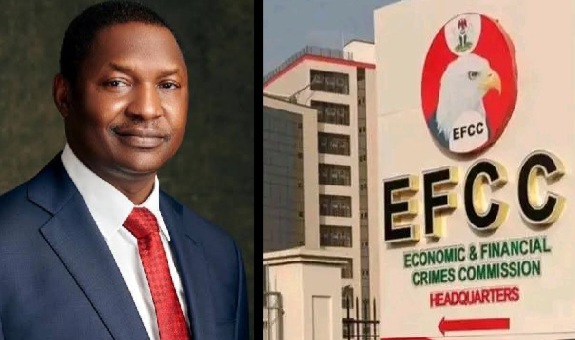The Economic and Financial Crimes Commission (EFCC) has invited former Attorney-General of the Federation and Minister of Justice, Abubakar Malami (SAN), over several high-profile corruption allegations tied to transactions that occurred during his tenure.
Malami’s invitation marks a significant escalation in ongoing investigations first reported in 2023, when the anti-graft agency examined five major financial dealings flagged as suspicious, controversial, or lacking transparency.
At the centre of the probe is the mysterious $496 million payment to Global Steel Holdings Ltd (GSHL) as settlement for the termination of the Ajaokuta Steel concession—despite the company reportedly waiving all claims nine years earlier.
Investigators are also questioning Malami’s role in the sale of multi-billion-naira assets forfeited to the EFCC, including concerns over valuation, disposal processes and alleged underhand dealings involving politically exposed persons.
Another major focus is the $419 million judgment debt awarded to consultants who claimed to have facilitated Paris Club refunds to states—an action that sparked nationwide outrage and multiple legal battles.
The EFCC is equally scrutinising a $200 million compensation agreement with Sunrise Power in its dispute with the Federal Government over the stalled Mambilla power project, a deal critics described as inexplicable and detrimental to Nigeria’s interests.
Also under review is the allegation of duplicated legal fees in the transfer of the $321 million Abacha loot from Switzerland to Nigeria, with investigators probing whether the country paid more than once for the same legal service.
Malami, who served as AGF from 2015 to 2023, has repeatedly denied wrongdoing, insisting that all decisions taken under his watch were lawful and in Nigeria’s best interest.
The EFCC has not yet released details of the interrogation, but sources say the probe is expected to intensify in the coming days as the commission revisits major financial decisions made during the Buhari administration.
The invitation signals a potentially defining moment in the anti-corruption fight—one that could reshape accountability for top officeholders in Nigeria.




